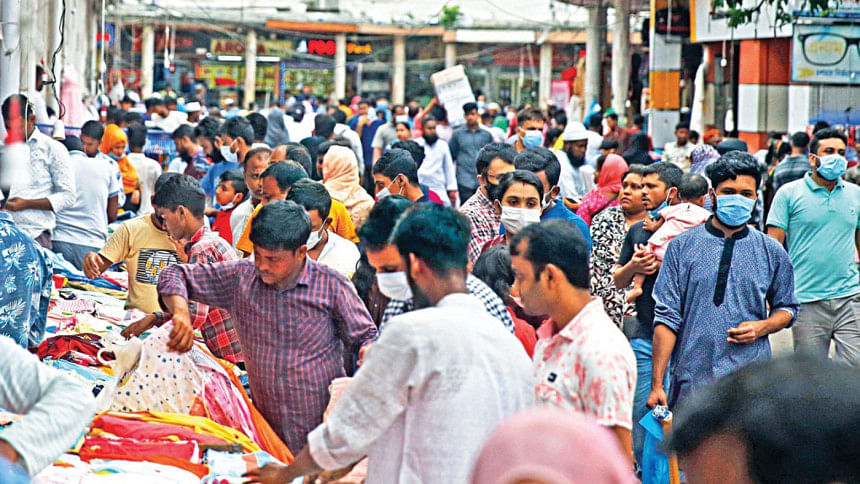Economy may make a turnaround in 3rd quarter of FY 2020-21: MCCI

The economy is expected to overcome the difficulties stemming from the fallouts of the Covid-19 pandemic in the third quarter of the current fiscal year on the back of rising exports, imports, and remittances, said the Metropolitan Chamber of Commerce and Industry (MCCI), Dhaka yesterday.
The rate of inflation can be expected to go up in February because of the probable rise in some essential commodities, it said in its review of the economic situation during October–December 2020 released yesterday.
The trade body said Bangladesh's economy was now rebounding from the Covid-19 shocks due to the government's steps and the implementation of the stimulus packages, which allowed businesses to withstand the crisis.
A large segment of informal industries, services and other activities have resumed operations, but they seem to be running at a much lower level of capacity.
The export-oriented garment and leather, and the domestic market-oriented steel, food-processing and transport sectors are not running at full capacity yet, said the trade body.
The MCCI said major economic indicators such as remittances, foreign currency reserves, money supply, and inflation are at a satisfactory position.
The exchange rate has long been remained stable while the current account and balance of payments are also in positive territory.
The positive changes need to be interpreted carefully, the chamber said.
"Private investors are trying to cope with the situation instead of making further investments."
"Bangladesh is now facing some major challenges in steering its economy to a higher growth trajectory due to slow implementation of development projects, unemployment, low investment and the sluggish growth of revenue."
The chamber called for a significant increase in public and private investment to maintain competitiveness and generate further growth.
"Employment can't grow fast enough when private investment is stagnating."
Private investment in the country has been hovering around 22-23 per cent of the GDP for many years.
Domestic reforms as well as initiatives to liberalise trade-related policies for improving the investment climate are urgently needed to rejuvenate employment growth, it said.

 For all latest news, follow The Daily Star's Google News channel.
For all latest news, follow The Daily Star's Google News channel. 




Comments